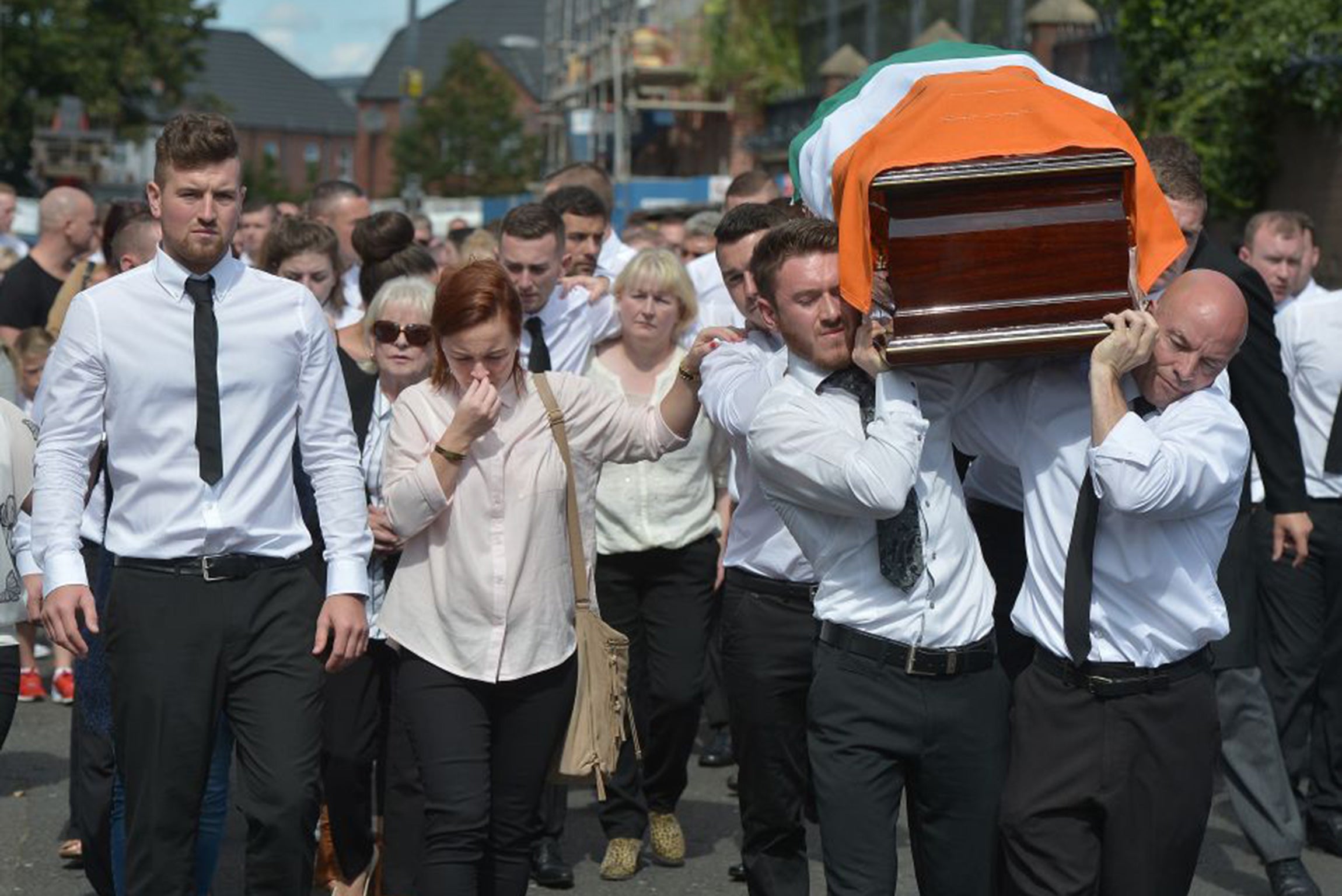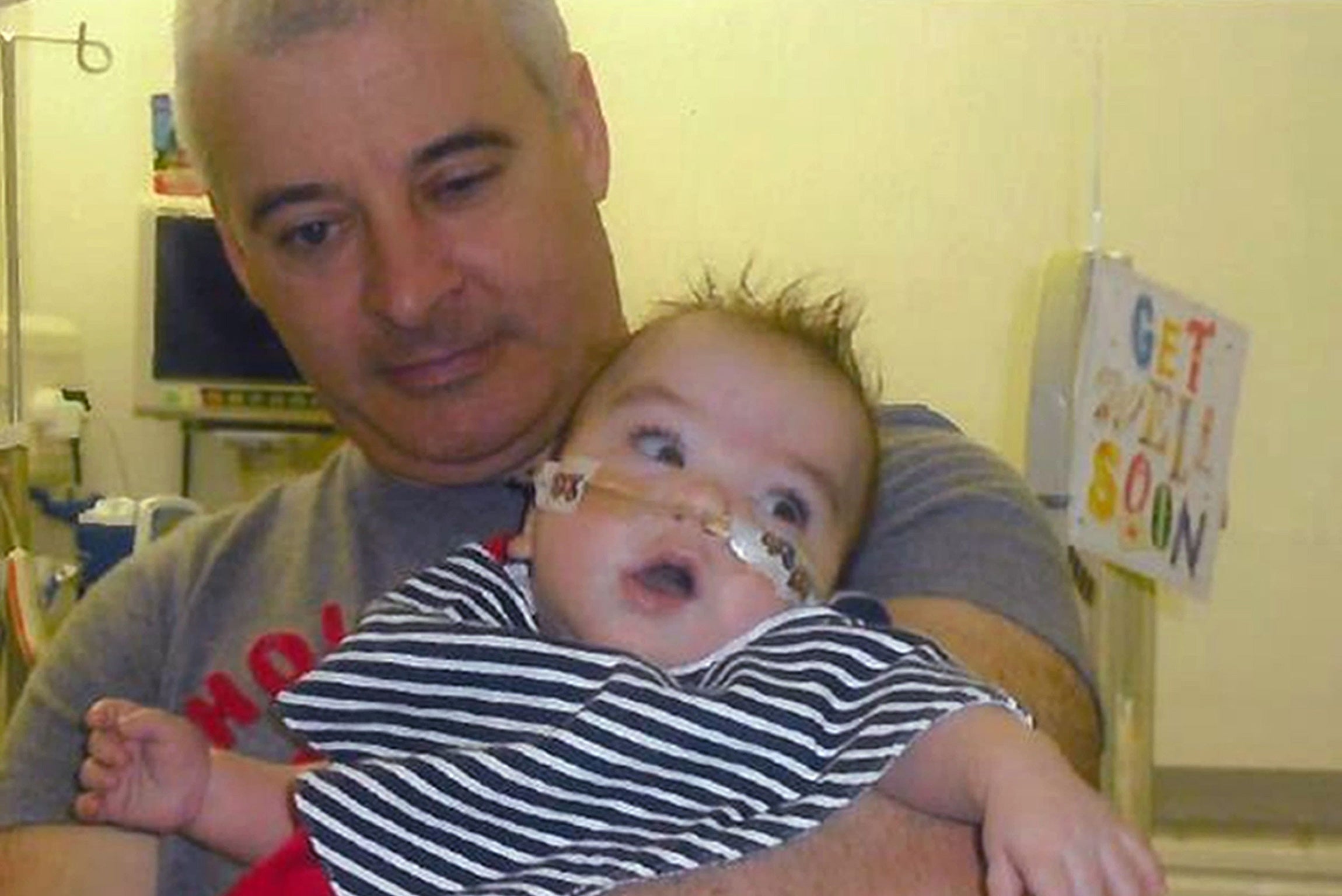IRA: Is the terrorist group still active? Or just a useful alibi for Unionist politicians?
It is claimed the IRA was involved in this month's murder of Kevin McGuigan

Your support helps us to tell the story
From reproductive rights to climate change to Big Tech, The Independent is on the ground when the story is developing. Whether it's investigating the financials of Elon Musk's pro-Trump PAC or producing our latest documentary, 'The A Word', which shines a light on the American women fighting for reproductive rights, we know how important it is to parse out the facts from the messaging.
At such a critical moment in US history, we need reporters on the ground. Your donation allows us to keep sending journalists to speak to both sides of the story.
The Independent is trusted by Americans across the entire political spectrum. And unlike many other quality news outlets, we choose not to lock Americans out of our reporting and analysis with paywalls. We believe quality journalism should be available to everyone, paid for by those who can afford it.
Your support makes all the difference.On 14 August 1995 the Sinn Fein president Gerry Adams uttered a phrase that has come back to haunt him and his party many times. “They haven’t gone away, y’know,” he said in response to a man at a Belfast rally who called out: “Bring back the IRA.”
In the course of his speech leading up to the remark, Adams had accused the British government, Unionist politicians and what Sinn Fein refer to as the “securocrats” of British intelligence of trying to strangle the fledgling Northern Ireland peace process. It was one of the few times Adams has played into the hands of political opponents.
Last week a detective superintendent from the Police Service of Northern Ireland (PSNI) paraphrased Adams and claimed the IRA had been involved in the murder of Kevin McGuigan in Belfast on 12 August and that the terrorist group still existed. His statement was later supported by the Chief Constable George Hamilton. This comment has destabilised the ongoing peace process and will, today, result in the Ulster Unionist Party leaving the power-sharing Assembly. The Democratic Unionist Party (DUP) is considering taking action too. The DUP deputy leader Nigel Dodds said on Thursday: “Republicans are responsible for the crisis.”
Since the PSNI asserted former IRA members were involved in the murder of McGuigan, a former IRA man, the British and Irish governments have moved to limit the damage. The Northern Ireland Secretary Theresa Villiers said: “It didn’t come as a surprise to me. My understanding is that a number of structures of the Provisional IRA still exist but there is no evidence it’s involved in terrorism or paramilitary activity.”

Dublin’s Minister for Defence Simon Coveney called for a “cautious response” to the fallout from what he described as a “very nasty murder”.
Adams has also sought to calm Unionist fears and said the murder of McGuigan was wrong and that “those who were involved in it are criminals who do not represent republicanism”.
He further stated that the group which claimed responsibility for the shooting, Action Against Drugs, is “a mix of former republicans who have engaged in intimidation and violence in pursuit of their criminal ends.”
So far, there have been nine arrests during the PSNI’s investigation of the murder. One man, suspected of a firearms offence, has been refused bail, but the eight others have been released without charge. The investigation throws up two possibilities. Was the detective superintendent who appeared to blame the IRA guilty of a careless remark based on suspicion or hearsay rather than fact? Or was it a carefully considered statement made at a time of increased tension to destabilise the political situation?
Republicans claimed throughout the 30-year history of the Troubles that the political policing and heavy-handed intervention of the PSNI’s forerunner, the RUC, was one of the greatest barriers to peace. Indeed, RUC officers were responsible for beating Sammy Devenny to death in Derry in 1969 following a civil rights protest – a time when the IRA was in semi-retirement (it was a ramshackle organisation of old men who had fought in not-well-supported campaigns of violence in the 1940s and 1950s). Back then, the IRA hadn’t gone away – and after Devenny’s death it quickly returned with a new breed of militant young republicans who went on to kill hundreds of people in a 28-year campaign that finally ended on 19 July 1997. The group formally announced its disbandment on 28 July 2005. In September 2008, the International Monitoring Commission that oversaw its decommissioning declared the IRA’s Army Council was “no longer operational or functional”.
That former members of the organisation have since engaged in criminal activity, including murder, should be of no surprise. Other former IRA members have been involved in a fuel-smuggling racket in border areas for years – and their crimes seem to be tolerated, given the lack of law enforcement in this area by police forces on both sides of the Irish border.
A suspicion that has gained traction is that policing in Northern Ireland remains open to manipulation by nefarious interest groups despite its reorganisation, new name, and success in attracting recruits from the Catholic community.
The fact that there will be a Northern Ireland Assembly election next year and, more significantly, one in the Republic – after which Sinn Fein may hold the balance of power – is lending credence to the suspicion that the reintroduction of the IRA by the PSNI could be an attempt to influence voters.
A police force’s remit is to solve crime, protect society and foster peace and security. When a statement by police does the opposite, it should be investigated. It would be timely to prove that activities associated with what was a previously “dirty war” had been decommissioned too.
Despite the anger caused, Sinn Fein has reaffirmed its commitment to policing, and Mr Hamilton appeared alongside Sinn Fein members in Derry this week – a demonstration that Sinn Fein is not part of whatever the PSNI considers to be the IRA’s remnant.
Perhaps Adams will be tempted to revisit his infamous remark. With peace-loving nationalists wondering if the transformation of Northern Ireland policing has been successful, he may ponder the political interference of the RUC in previous years and say, ominously: “They haven’t gone away, y’know.”
Join our commenting forum
Join thought-provoking conversations, follow other Independent readers and see their replies
Comments